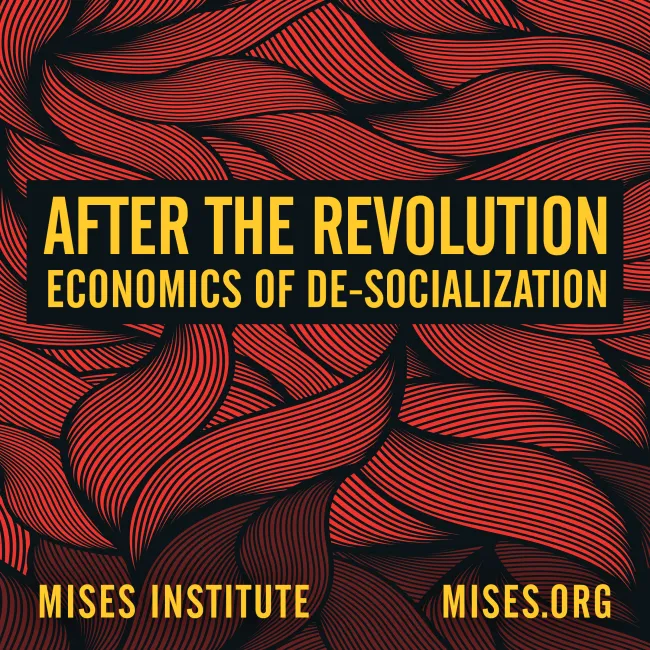After the Revolution: Economics of De-Socialization

On April 23, 1990, in Washington, DC, the Mises Institute sponsored the first Austrian school look at the post-socialist age. It went a long way toward developing a blueprint—consistent with the Austrian tradition—for dismantling the command economy. Featuring Hans-Hermann Hoppe, Krzysztof Ostaszewski, Yuri N. Maltsev, Gottfried Haberler, Kestutis Baltramatis, Murray N. Rothbard, and Joseph Sobran.

